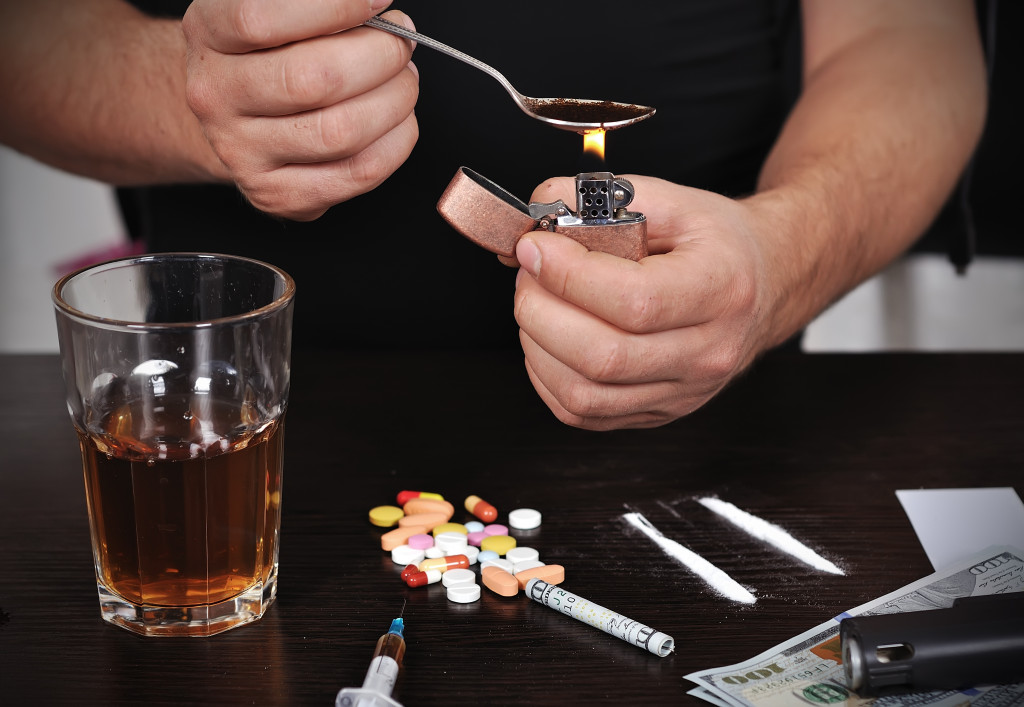Addiction is a severe problem that plagues millions of people around the world. In this blog post, you’ll take a comprehensive look at addiction, what it is, how it develops, and how to look for warning signs if you or someone you know is struggling with an addiction.
What is Addiction?
Addiction is a chronic, relapsing brain disease marked by compulsive seeking and abuse, despite harmful consequences. Drugs of abuse hijack the brain’s reward system by flooding it with dopamine, a neurotransmitter that helps control the brain’s pleasure and motivation centers. This flood of dopamine produces the “high” users feel and crave.
Over time, the brain adapts and becomes less sensitive to the drug’s effects, which leads users to take more drugs to get the same result—a phenomenon known as tolerance. Tolerance can even lead to addiction when people continue taking a drug to avoid withdrawal symptoms, which can be unpleasant and even life-threatening. Withdrawal occurs when people stop taking a drug they have been using regularly. Addicts may experience withdrawal symptoms such as anxiety, irritability, and depression.
How Does Addiction Develop?
People who suffer from addiction sometimes have other mental disorders such as anxiety, depression, or traumas such as child abuse or exposure to violence. These disorders can make people more vulnerable to addiction. Genetics also play a role in addiction; some people are more genetically predisposed to becoming addicts than others.
People who start using drugs at a young age are also more likely to develop an addiction later in life. This is because the teenage brain is still growing and is thus more susceptible to the harmful effects of drugs. Finally, peer pressure and social influences can also lead people to addiction.

Different Kinds of Addictions
There are many different types of addiction, but they all share some common elements. Addictions can be physical or psychological and involve various substances or behaviors. Some examples of addiction include drug and alcohol abuse, sex addiction, internet addiction, and gaming addiction.
Physical Addiction
Physical addiction is the most commonly known type of addiction. It occurs when a person becomes physically dependent on a substance. Withdrawal symptoms can be more severe in physical addiction cases than in psychological addiction cases. Treatment for physical addiction typically involves detoxification and rehabilitation, such as in a drug and alcohol treatment center.
One example of a physical addiction is a crack cocaine addiction. An English study from 2014 stated that the number of people using this substance had risen by 10% since 2010. Other examples include pain relievers, heroin, and meth addictions.
Psychological Addiction
Psychological addiction is less well-known, but it can affect users’ lives just as severely. It is also often less obvious than physical addiction but can be just as dangerous. Psychological dependence occurs when a person becomes emotionally dependent on a behavior or activity. Treatment for psychological addiction typically involves therapy and counseling.
Some psychological addicts are addicted to gambling, spending hours at the casino even though they can’t afford to lose any more money. Others become addicted to shopping, going on spending sprees that wreak havoc on their finances. Some people even become addicted to work, putting in long hours even when it takes a toll on their personal lives.
In each of these cases, the addict is driven by a compulsion to perform the behavior, regardless of the negative consequences. This can lead to financial ruin, destroyed relationships, and even death.
Warning Signs
It’s essential to be aware of addiction’s warning signs to avoid or treat it early. While it is often difficult to spot early warning signs, some general patterns may indicate that someone is struggling with addiction. For example, they may start to neglect their responsibilities at home, work, or school. They may also begin to engage in risky behaviors, such as using drugs or alcohol in situations where it is dangerous to do so.
Additionally, they may withdraw from friends and family members and become increasingly isolated. If you notice any warning signs, it is essential to seek treatment as soon as possible. Addiction is a treatable condition, but the sooner treatment is started, the better the chances of recovery.
Addictions come in many forms, but they all share some common elements. These can be physical or psychological and can be treated in various ways. If you or someone you know is struggling with an addiction, help is available. Don’t be afraid to reach out to a qualified professional to help you or your addict understand the options and get started on the road to recovery.
